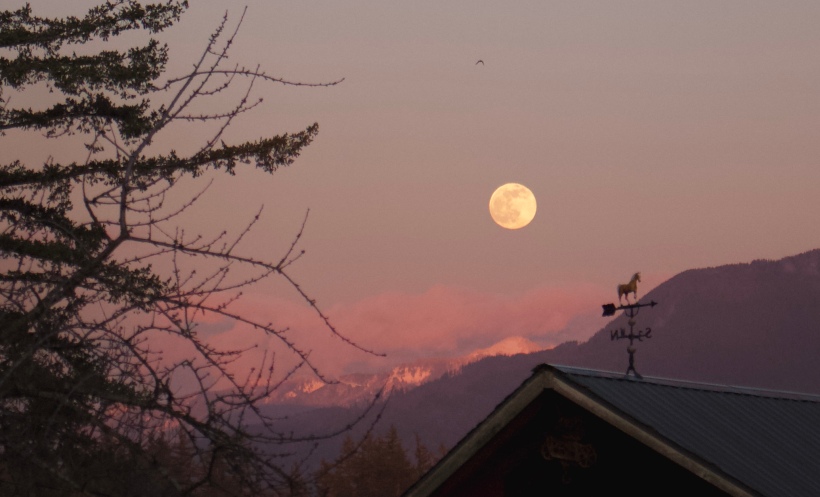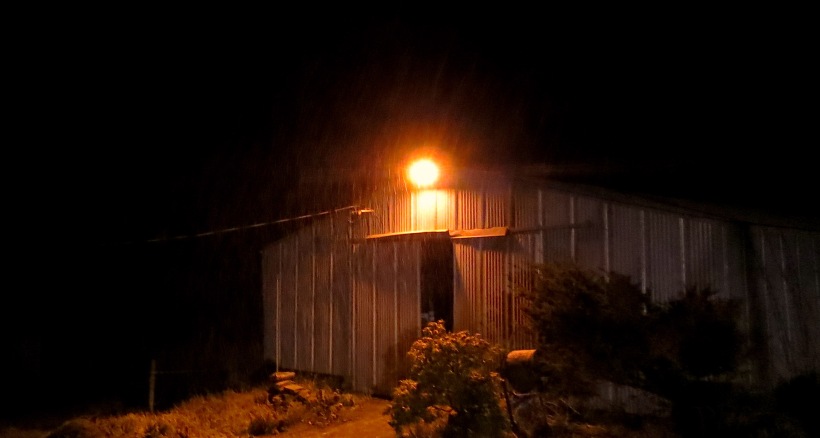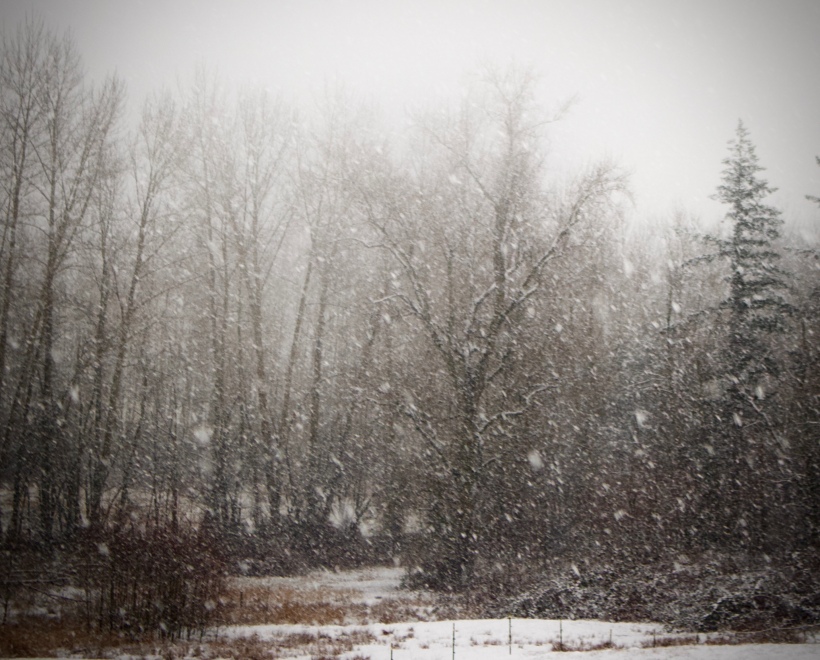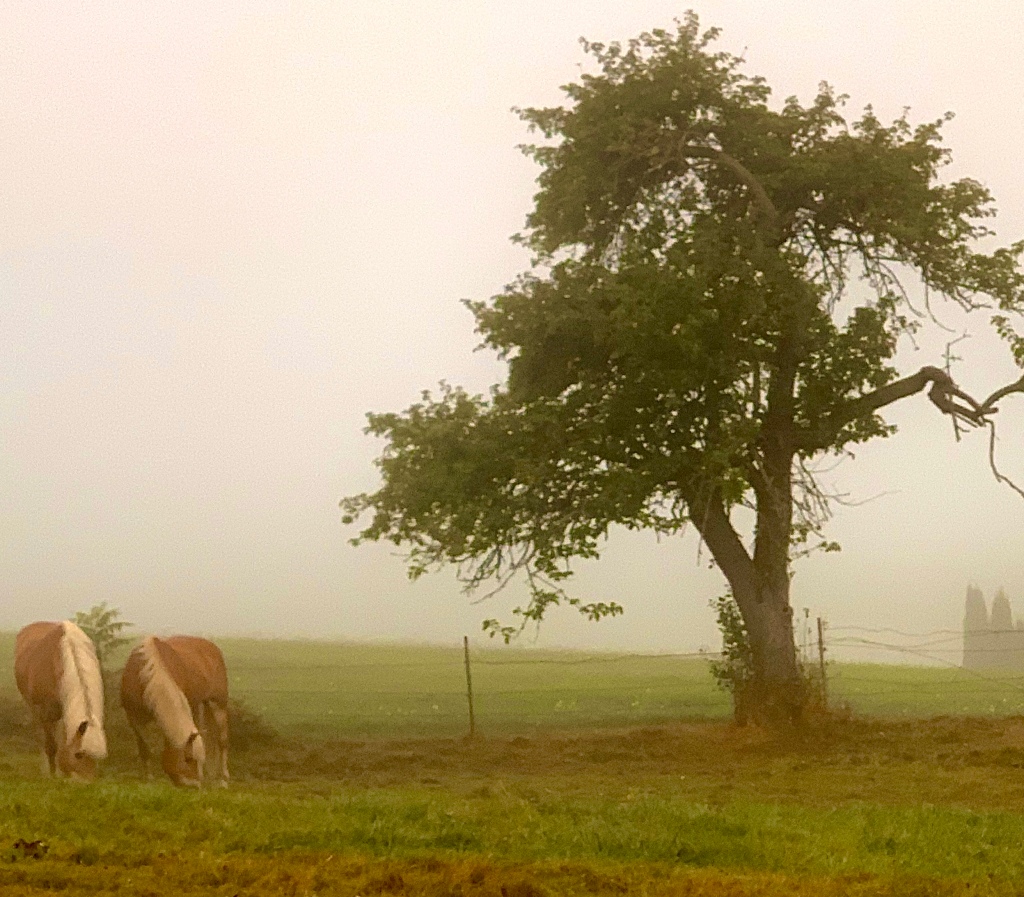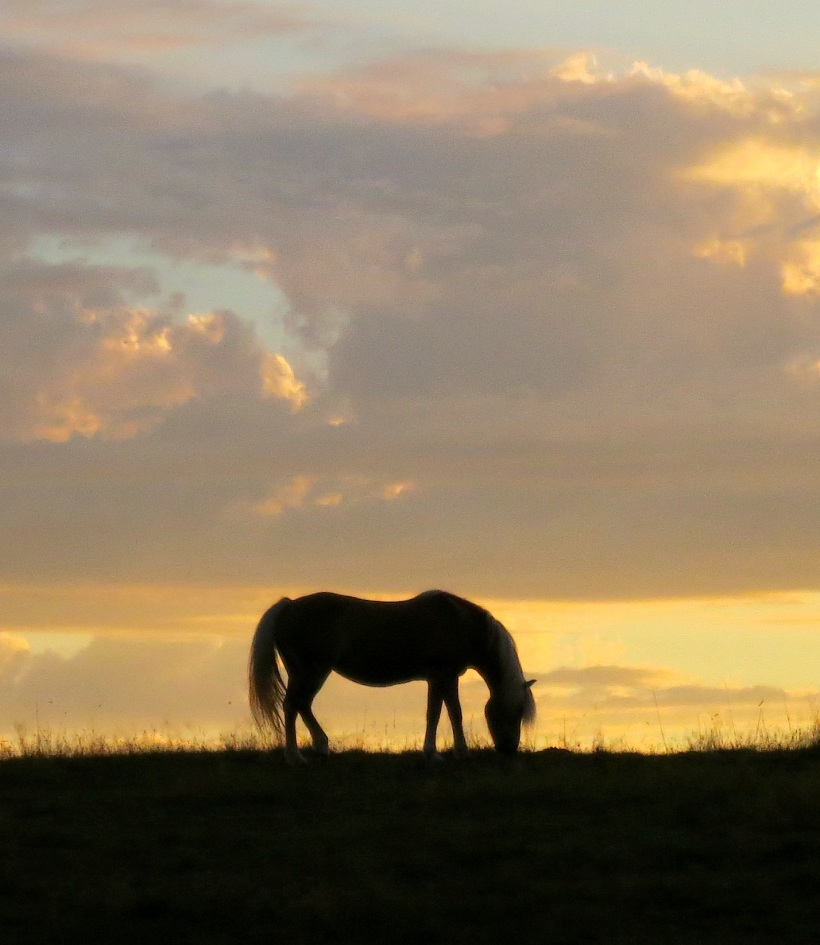

Christmas Eve, and twelve of the clock.
“Now they are all on their knees,”
An elder said as we sat in a flock
By the embers in hearthside ease.
We pictured the meek mild creatures where
They dwelt in their strawy pen,
Nor did it occur to one of us there
To doubt they were kneeling then.
So fair a fancy few would weave
In these years! Yet, I feel,
If someone said on Christmas Eve,
“Come; see the oxen kneel,
“In the lonely barton by yonder coomb
Our childhood used to know,”
I should go with him in the gloom,
Hoping it might be so.
~Thomas Hardy “The Oxen”

Says a country legend told every year:
Go to the barn on Christmas Eve and see
what the creatures do as that long night tips over.
Down on their knees they will go, the fire
of an old memory whistling through their minds!
So I went. Wrapped to my eyes against the cold
I creaked back the barn door and peered in.
From town the church bells spilled their midnight music,
and the beasts listened – yet they lay in their stalls like stone.
Oh the heretics!
Not to remember Bethlehem,
or the star as bright as a sun,
or the child born on a bed of straw!
To know only of the dissolving Now!
Still they drowsed on –
citizens of the pure, the physical world,
they loomed in the dark: powerful
of body, peaceful of mind, innocent of history.
Brothers! I whispered. It is Christmas!
And you are no heretics, but a miracle,
immaculate still as when you thundered forth
on the morning of creation!
As for Bethlehem, that blazing star
still sailed the dark, but only looked for me.
Caught in its light, listening again to its story,
I curled against some sleepy beast, who nuzzled
my hair as though I were a child, and warmed me
the best it could all night.
~Mary Oliver “Christmas Poem” from Goodness and Light

Growing up on my childhood farm,
remembering the magic of Christmas eve night,
I bundled myself up to stay warm
in our barn, to witness an unbelievable sight.
At midnight we knew the animals knelt down,
speaking words we could all understand,
to worship a Child born in Bethlehem town,
in a barn, long ago in a far away land.
They were there that night, to see and to hear,
the blessings that came from the sky.
They patiently stood watch at the manger near,
in a barn, while shepherds and kings stopped by.
My trips to the barn were always too late,
our cows would be chewing, our chickens asleep,
our horses breathing softly, cats climbing the gate,
in our barn, there was never a neigh, moo or peep.
But I knew they had done it, I just missed it again!
They were plainly so calm, well-fed and at peace
in the sweet smelling straw, all snug in their pens,
in a barn, a mystery, once more, took place.
Even now, I still bundle to go out Christmas eve,
in the hope I’ll catch them just once more this time.
Though I’m older and grayer, I still firmly believe
in the barn, a Birth happened amid cobwebs and grime.
Our horses sigh low as they hear me come near,
that tells me the time I hope for is now,
they will drop to their knees without any fear
in our barn, as worship, all living things bow.
I wonder anew at God’s immense trust
for His creatures so sheltered that darkening night –
the mystery of why of all places, His Son must
begin life in a barn: a welcoming most holy and right.
~ “In the Barn” (written Christmas Eve 1999)
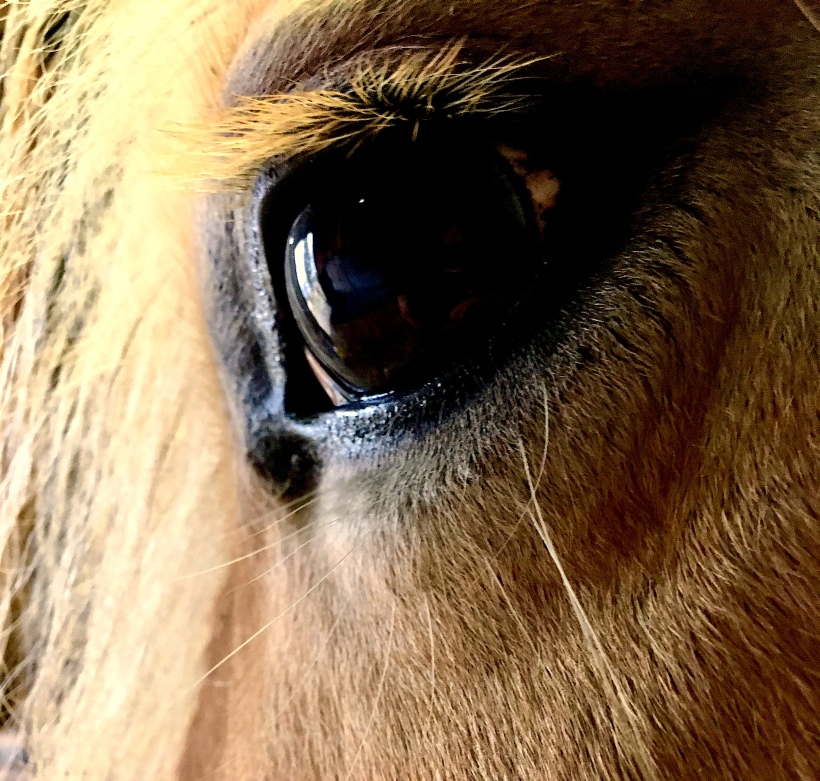
I walk to the barn tonight as I do each year,
Counting my blessings, knowing my flaws,
Praying for family and friends so dear,
And for each precious creature with hooves or paws.
Each horse is content and a witness to peace,
And I wish every person could know,
Sadness and worry for a moment can cease,
While patting noses down a stall row.
For once I see the sky is clear
And stars are shining bright
The northeast wind is coming near
And briskly chills this special night.
For weeks stars hid behind a cloud
Of doubt, of fear, of weeping rain,
Explosions at once so horrid and loud
The whole world instantly felt the pain.
Like stars that glow through blackest dark
Good overwhelms bad with barely left trace
All owed to a Child who left His mark
By giving Himself in infinite grace.
(written Christmas Eve 2001)
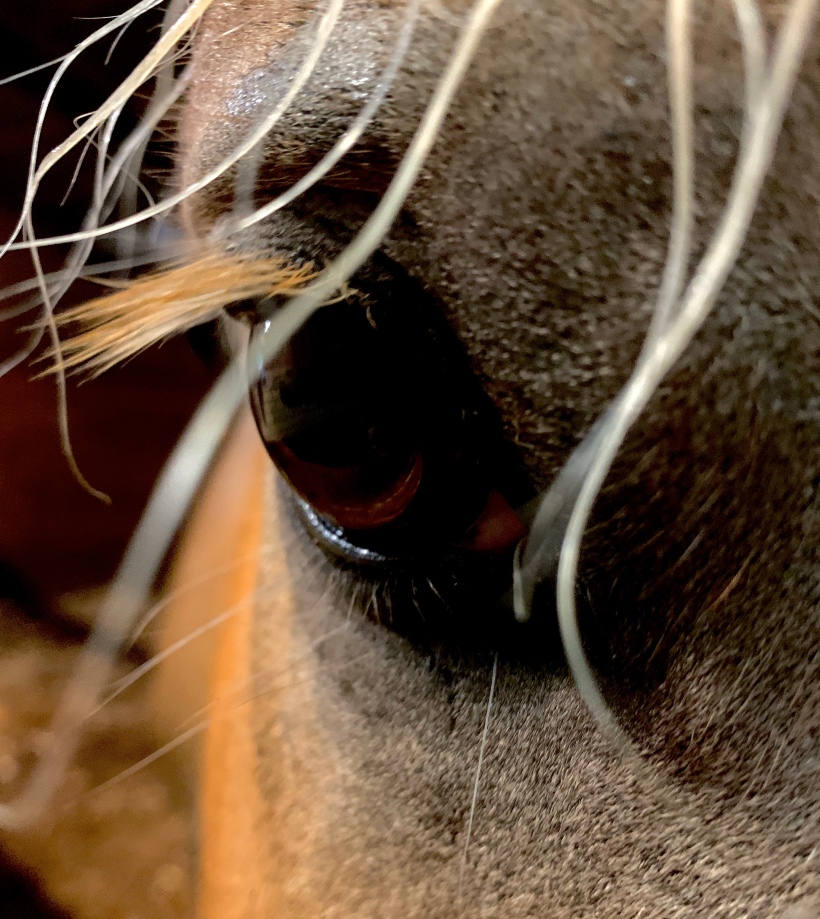
Advent 2023 theme
…because of the tender mercy of our God,
whereby the sunrise shall visit us from on high
to give light to those who sit in darkness
and in the shadow of death,
to guide our feet into the way of peace.
Luke 1: 78-79 from Zechariah’s Song
Make a one-time or recurring donation to support daily Barnstorming posts
Make a monthly donation
Make a yearly donation
Choose an amount
Or enter a custom amount
Your contribution is deeply appreciated.
Your contribution is appreciated.
Your contribution is appreciated.
DonateDonate monthlyDonate yearly

















